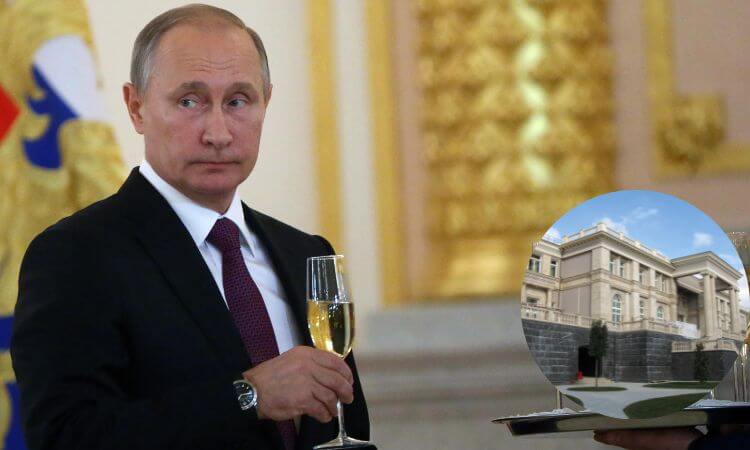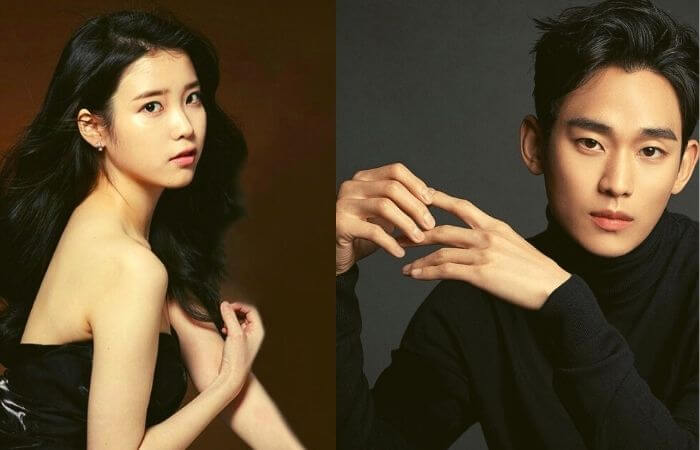Table of Contents
How much is Vladimir Putin Net Worth in 2024?
Vladimir Putin, the enigmatic leader of Russia, has long been a subject of intrigue for many due to his strongman image and controversial political career. Alongside questions about his political maneuvers, another matter that piques his curiosity is his net worth. Putin’s net worth has been the subject of speculation for years, given the secretive nature of his personal finances. In this article, we will explore the various estimates and controversies surrounding Vladimir Putin’s net worth.
Vladimir Putin Early Life
Vladimir Vladimirovich Putin, the current President of Russia, was born on October 7, 1952, in Leningrad (now Saint Petersburg), Russia. His early life was marked by both personal and historical challenges. Here is a brief overview of his early years:
- Humble Origins: Putin was born into a working-class family. His father, Vladimir Spiridonovich Putin, was a factory worker, and his mother, Maria Ivanovna Putina, worked in a factory as well. His paternal grandfather, Spiridon Ivanovich Putin, was a chef for Soviet leaders, including Joseph Stalin.
- Education: Putin attended a local elementary school and then pursued higher education at the Leningrad State University, where he studied law. His academic performance was commendable, and he was involved in various sports, such as judo and sambo, where he achieved black belts.
- Early Career: After graduating from the university in 1975, Putin began his career in the Soviet Union’s security apparatus. He worked as an intelligence officer for the KGB, the Soviet Union’s main security and intelligence agency, and was stationed in East Germany. During his time in the KGB, he acquired valuable skills in espionage and intelligence work.
- Transition to Politics: With the dissolution of the Soviet Union in 1991, Putin returned to Russia and embarked on a new career path in politics. He initially worked in the Mayor’s Office in Saint Petersburg and held various positions. His performance in these roles drew the attention of influential politicians, including Anatoly Sobchak, the Mayor of Saint Petersburg at the time.
- Moscow and Rapid Ascent: In 1996, Putin moved to Moscow, where he began working for the Russian government. He served in various capacities within the administration and eventually became the head of the Federal Security Service (FSB), the successor to the KGB. His meteoric rise continued as he was appointed as Prime Minister under President Boris Yeltsin in 1999.
- Presidential Leadership: On December 31, 1999, Yeltsin resigned as president, and Putin became the Acting President of Russia. He was subsequently elected as President in 2000 and went on to serve two terms until 2008. He was succeeded by Dmitry Medvedev but returned to the presidency in 2012, serving consecutive terms until the present.
Vladimir Putin’s early life and career laid the foundation for his remarkable political journey, marked by a blend of intelligence, ambition, and experience. His KGB background, along with his roles in the administrations of Saint Petersburg and Moscow, contributed to his ascent to the highest political office in Russia, where he has wielded considerable influence on the global stage.
DO NOT MISS: How much is Alec Baldwin Net Worth in 2024?
Vladimir Putin Career
Vladimir Putin’s career has been marked by a blend of intelligence work, government service, and political leadership. He has held various influential positions in the Russian government and is currently serving his fourth term as the President of Russia. Here’s an overview of his career:
- Early Career in the KGB (1975-1991):
- After graduating from Leningrad State University in 1975 with a degree in law, Putin joined the Soviet Union’s security agency, the KGB.
- He initially worked in counterintelligence and later shifted to the First Chief Directorate, responsible for foreign intelligence.
- Putin served as a KGB officer in East Germany for several years and held the rank of lieutenant colonel by the time of his return to Russia.
- Stint in Local Government (1991-1996):
- After the dissolution of the Soviet Union, Putin returned to Russia and entered politics.
- He served in various positions in the local government of Saint Petersburg, including as an advisor to the Mayor, Anatoly Sobchak.
- His work in Saint Petersburg gained recognition, and he was appointed as the Deputy Mayor of the city in 1991.
- Move to Moscow and Rise in the Federal Government (1996-1999):
- In 1996, Putin moved to Moscow and took a position in the Kremlin as Deputy Chief of the Presidential Property Management Directorate.
- In 1999, he was appointed as the head of the Federal Security Service (FSB), the successor to the KGB, by President Boris Yeltsin.
- Later that year, he also became the Secretary of the Security Council of the Russian Federation.
- Prime Minister and Acting President (1999-2000):
- In August 1999, Putin was appointed as Prime Minister of Russia by President Boris Yeltsin.
- Yeltsin’s resignation on December 31, 1999, led to Putin becoming the Acting President of Russia.
- First Presidential Term (2000-2008):
- In March 2000, Vladimir Putin was elected as President of Russia. He would serve two terms, with his second term starting in 2004.
- During his presidency, he implemented various economic and political reforms, consolidating power within the Kremlin.
- Putin also oversaw Russia’s return to a more assertive role on the international stage.
- Interim Role as Prime Minister (2008):
- Due to term limits, Putin could not run for the presidency in 2008. Instead, he became Prime Minister under President Dmitry Medvedev, a move that many saw as a means for him to maintain influence.
- Second Presidential Term (2012-2018):
- In 2012, Putin was elected as President again, and he served another term.
- His return to the presidency sparked protests and allegations of election irregularities.
- Fourth Presidential Term (2018-Present):
- Putin secured his fourth term as President of Russia in the 2018 elections.
- His tenure has been marked by domestic and international challenges, including economic issues, geopolitical tensions, and the global response to events such as the annexation of Crimea in 2014.
Vladimir Putin’s career has been characterized by a remarkable rise from a KGB officer to a prominent figure in Russian politics and international affairs. His leadership style has often been described as authoritative, and he continues to be a central figure in Russian politics and on the global stage.
The Elusive Nature of Putin’s Wealth
Vladimir Putin’s wealth has been a subject of speculation and controversy for many years. The elusive nature of Putin’s wealth can be attributed to several factors:
- Opaque Financial Practices: The Russian government, under Putin’s leadership, has not been known for its transparency when it comes to financial matters. It’s challenging to access detailed information about his assets, income, and investments. The lack of financial disclosure requirements for public officials in Russia has contributed to this opacity.
- Control through Oligarchs: Putin is often associated with a network of oligarchs who control vast amounts of wealth in Russia. These oligarchs are known to have close ties to the Kremlin, and their fortunes are intertwined with the state. While this allows Putin to exert influence indirectly, it also makes it difficult to discern where his personal wealth begins and the state’s assets end.
- Offshore Accounts and Shell Companies: The Panama Papers leak in 2016 revealed a web of offshore accounts and shell companies linked to some of Putin’s close associates. While these documents did not directly implicate Putin in financial wrongdoing, they highlighted the complex and convoluted financial networks that make it challenging to trace wealth back to him.
- Official Denials: The Russian government, including Vladimir Putin himself, has consistently denied allegations of his vast personal wealth. Official statements from the Kremlin typically portray Putin as a modest individual with limited financial assets, such as a government salary and a small apartment.
- Secrecy Surrounding State-Owned Companies: Putin’s alleged control over state-owned companies and access to Russia’s vast natural resources is another factor contributing to the uncertainty surrounding his wealth. The details of his involvement and the extent of his interests in these enterprises are closely guarded secrets.
- Lack of Independent Verification: Independent verification of Putin’s wealth is challenging due to the lack of checks and balances within the Russian political system. The absence of a free press and robust investigative journalism also makes it difficult to scrutinize the financial dealings of those in power.
- International Sanctions: Western sanctions against Russia and individuals close to Putin have complicated efforts to uncover his wealth. These sanctions have targeted individuals and entities believed to be involved in actions contrary to international law and have hindered access to global financial systems.
In conclusion, the elusive nature of Vladimir Putin’s wealth is a result of a combination of factors, including a lack of transparency in the Russian political system, the complex relationships between the state and wealthy individuals, offshore financial structures, and official denials. While various estimates of his net worth have been put forward, the true extent of his personal wealth remains shrouded in secrecy and controversy, making it a topic of ongoing speculation and debate.
Estimates and Controversies
Estimating Vladimir Putin’s net worth has been a subject of much speculation and controversy over the years. Several estimates and controversies have emerged, but it’s essential to approach them with caution, as the secretive nature of Putin’s financial affairs makes it challenging to ascertain his true wealth. Here are some of the key estimates and controversies surrounding Vladimir Putin’s net worth:
- Bill Browder’s $200 Billion Claim: Perhaps one of the most widely cited estimates of Putin’s wealth comes from Bill Browder, a former hedge fund manager and Kremlin critic. Browder claimed in a 2015 interview that Putin’s net worth could be as high as $200 billion, which would make him the richest person in the world. Browder’s estimate is based on Putin’s alleged control over various assets, including stakes in state-owned companies and access to Russia’s vast natural resources. However, this figure lacks concrete evidence and has been met with skepticism.
- Offshore Accounts and the Panama Papers: The Panama Papers leak in 2016 revealed offshore accounts and shell companies linked to many prominent individuals, including some of Putin’s close associates. While these documents did not directly implicate Putin in financial wrongdoing, they shed light on the complex web of financial connections among Russia’s political elite. Some speculated that these connections could indirectly benefit Putin, but no conclusive evidence was presented to support this claim.
- The Russian Government’s Denials: The Russian government has consistently denied allegations of Putin’s vast personal wealth. According to official statements, Putin’s financial assets are limited to his government salary, a small apartment, and a collection of Soviet-era cars. The Kremlin portrays him as a modest individual with no extravagant wealth. These denials further complicate efforts to estimate his net worth.
- Lack of Transparency: The lack of transparency in the Russian political system, the absence of financial disclosure requirements for public officials, and the secretive nature of Putin’s personal finances make it difficult to verify any estimates. The Russian state closely guards information about its leaders’ wealth.
- Western Sanctions: Western sanctions against Russia and individuals close to Putin have hindered access to global financial systems and made it challenging to uncover and track Putin’s financial assets. These sanctions were imposed in response to actions taken by Russia, including the annexation of Crimea and alleged interference in foreign elections.
In conclusion, the estimates and controversies surrounding Vladimir Putin’s net worth underscore the challenges of ascertaining the wealth of a political leader with a secretive disposition and operating in a political system that lacks transparency. While various estimates have been put forward, the true extent of his personal wealth remains a subject of speculation and debate, and it is challenging to arrive at a definitive conclusion.

Vladimir Putin Net Worth
Browder testified before the US Senate in 2017 that he estimates the Russian leader’s wealth to hover around $200 billion in assets, which would make him among the wealthiest people on the planet.
Vladimir Putin Personal Life
Vladimir Putin, the President of Russia, has a relatively private and guarded personal life. He keeps many aspects of his personal life away from the public eye, which has contributed to the mystery and intrigue surrounding him. Here are some details about his personal life that are publicly known:
- Family:
- Vladimir Putin was married to Lyudmila Putina from 1983 to 2014. They have two daughters, Maria and Yekaterina, who are known as Masha and Katya. However, very little is known about his daughters, and they have largely stayed out of the public spotlight.
- Martial Arts:
- Putin is known for his interest in martial arts. He has practiced judo since he was a teenager and holds a black belt in the sport. He has also been involved in other combat sports, such as sambo and karate.
- Outdoor Activities:
- Putin enjoys outdoor activities, including fishing, skiing, and hiking. He is often photographed engaging in these activities during his downtime.
- Love for Animals:
- Putin is known for his love of animals, and he has been photographed engaging in various activities involving wildlife. He has even been seen tranquilizing and tagging tigers and participating in wildlife conservation efforts.
- Personal Hobbies:
- Putin has a few known hobbies and interests, such as playing the piano and writing. He has penned several books, including one about his vision for Russia’s future.
- Official Residences:
- As the President of Russia, Putin has access to several official residences, including the Kremlin and Novo-Ogaryovo, which is the presidential residence located outside of Moscow.
- Public Image:
- Putin has cultivated a strongman image, often appearing shirtless in carefully staged photo opportunities to project an image of physical fitness and strength.
- Personal Wealth:
- The extent of Putin’s personal wealth remains a subject of speculation and controversy. He has officially claimed to have limited assets, such as a government salary, a small apartment, and a collection of Soviet-era cars. However, various estimates suggest he may have significant wealth that is not publicly disclosed.
- Privacy and Secrecy:
- Putin is known for maintaining a high level of privacy and secrecy surrounding his personal life, which has made it difficult for the public to gain insight into his true lifestyle and wealth.
Vladimir Putin’s personal life remains shrouded in mystery due to his secretive nature and the controlled narrative presented to the public. While some information is available, much of his life beyond his political role remains undisclosed, adding to the intrigue and speculation surrounding one of the world’s most powerful leaders.
Conclusion
Vladimir Putin’s net worth remains a contentious and elusive topic. The lack of transparency in his financial affairs, combined with the often conflicting estimates and allegations, has made it difficult to ascertain his true wealth. While some estimates suggest he may be one of the wealthiest individuals in the world, the absence of concrete evidence and the Russian government’s official statements make it challenging to arrive at a definitive conclusion.
In the end, the true extent of Vladimir Putin’s wealth remains a subject of intrigue and controversy, underscoring the complexities of understanding the finances of political leaders with secretive tendencies. As long as Putin maintains his grip on power in Russia, the mystery surrounding his net worth is likely to persist.


